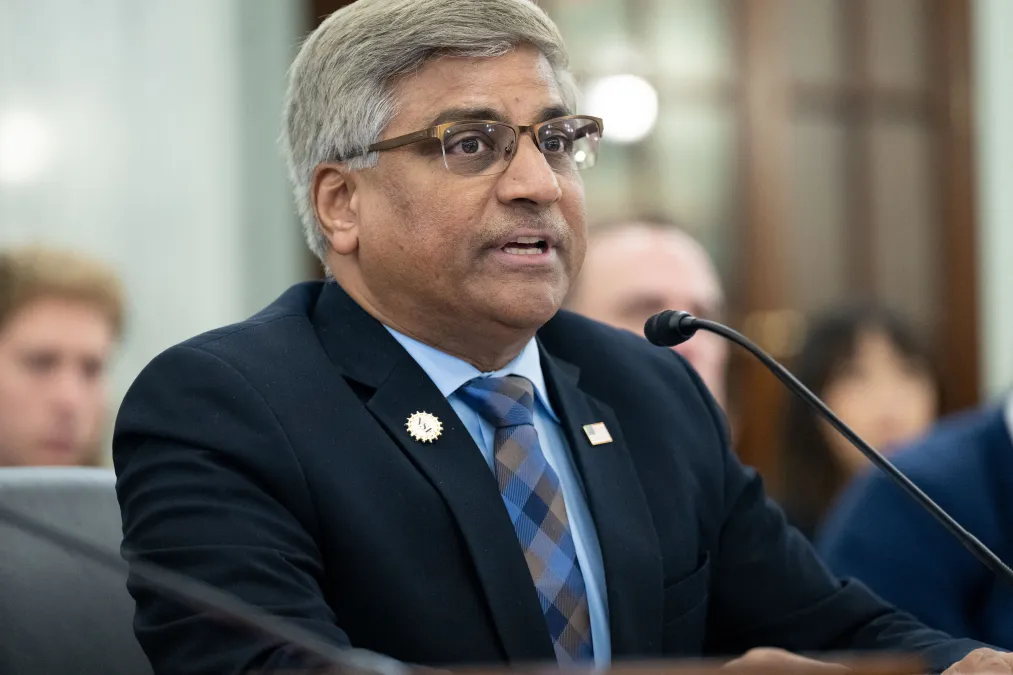NSF director Panchanathan announces his departure

The director of the National Science Foundation announced his departure Thursday after five years at the agency.
In a brief public statement, Sethuraman Panchanathan said he was stepping down effective Thursday and called it “an honor and privilege to serve as the Director of NSF.” He also informed employees at NSF in an internal memorandum viewed by FedScoop.
“I believe I have done all I can to advance the critical mission of the agency and feel that it is time for me to pass the baton to new leadership,” Panchanathan said in the public statement.
Panchanathan assumed the role as NSF director during the first administration of President Donald Trump and carried on under Joe Biden. Under his leadership, the department launched its 27 AI institutes, began its Technology, Innovation, and Partnership Directorate, which has funded regional hubs for innovation across the U.S., and started the National AI Research Resource pilot project.
In his internal statement, Panchanathan underscored the efficiency of the agency — something that’s been a priority for this administration with its so-called Department of Government Efficiency efforts.
“While NSF has always been an efficient agency, we still took the challenge of identifying other possible efficiencies and reducing our commitments to serve the scientific community even better,” he said.
Panchanathan added: “This is a pivotal moment for our nation in terms of global competitiveness. NSF is an extremely important investment to make US scientific dominance a reality. We must not lose our competitive edge. A thoughtful approach to efficiencies and investments is incredibly important.”
His departure comes soon after the agency began terminating grants that didn’t comply with the priorities of the current administration, including items related to diversity, equity and inclusion (DEI) and misinformation and disinformation. According to FedScoop reporting, some NSF staff have been instructed that funding opportunities needed approval by DOGE, the Office of Management and Budget, or the Office of the Director.
Before joining NSF, Panchanathan was executive vice president of knowledge enterprise development and chief research and innovation officer at Arizona State University. He was also the foundation chair of computing and informatics, in addition to many other positions at the agency.
Just before his announcement, Panchanathan spoke about NSF’s work on artificial intelligence and planning for the technology in the next century at AIScoop’s AITalks. As part of that speech, he highlighted the AI innovation engines, the NAIRR and also noted — as he has in the past — that much of what we know about AI today is thanks to NSF investment.
“Much of AI of today is because of the sustained investments of NSF over the last seven decades,” he said. It wasn’t called AI then, he said, but it’s what led to the present-day technology. “So when we talk about what NSF is doing now and will be doing in the very near future, clearly that’s going to have a significant impact in terms of what we will be doing, or thinking about, or acting on, or implementing, or deploying in 2100.”
This story was updated with additional information.






